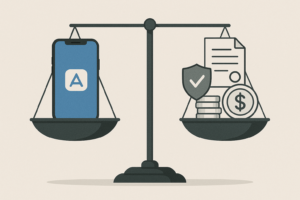Regulating the Gig Economy: Is Bangladesh Ready?

The Rise of the Gig Economy in Bangladesh: Can Regulation Keep Up?
The gig economy—a labor market defined by short-term contracts or freelance work instead of permanent jobs—is rapidly reshaping how Bangladeshis earn a living. From rideshare drivers on Pathao and Uber to remote freelancers on Fiverr, Upwork, and Toptal, millions are embracing the flexibility of gig work. However, this convenience comes with a price: lack of job security, absence of social safety nets, and ambiguous legal protections.
As the gig economy expands, the question arises—is Bangladesh ready to regulate it? With global examples offering both cautionary tales and best practices, this article explores the current status of gig work in Bangladesh, its potential, the risks involved, and what a regulation framework might look like.
The Gig Economy in Bangladesh – A Snapshot
In the last decade, Bangladesh has seen an explosive rise in platform-based work. According to the Oxford Internet Institute’s Online Labour Index, Bangladesh ranks among the top countries in terms of the supply of online freelancers. This shift reflects a broader transformation in how work is defined and delivered in the digital age. From graphic designers on Fiverr to virtual assistants on Upwork, a new generation of Bangladeshis is earning income from global and local clients—often without ever stepping into a traditional office.
Key Sectors:
Food delivery: Foodpanda, HungryNaki
Freelancing: Fiverr, Upwork, Freelancer.com

Why It’s Growing
Several factors are fueling the rapid growth of the gig economy in Bangladesh. One of the most significant is high youth unemployment. With over two million young people entering the job market each year and not enough formal employment opportunities to absorb them, many are turning to gig work as a practical alternative. Online freelancing, food delivery, and ridesharing offer immediate income without the long wait for government or corporate jobs.
Increasing smartphone and internet penetration has also played a crucial role. As affordable mobile data and smartphones become widespread—even in semi-urban and rural areas—more people are gaining access to online platforms that offer flexible income opportunities. For many, a phone and a few digital skills are all it takes to start earning.
The appeal of flexibility and autonomy is another key driver. Gig work allows individuals to choose their hours, work independently, and juggle other responsibilities such as education, caregiving, or even another job. This freedom makes gig work particularly attractive to students, single mothers, and rural youth.
Additionally, the lack of sufficient formal job opportunities—especially in sectors like manufacturing, public service, and traditional office-based work—has made gig platforms a valuable economic lifeline. With limited career paths and rising living costs, gig work fills a critical employment gap.
Yet, this growth is largely happening in a regulatory vacuum. Gig workers often operate without contracts, job security, social protection, or even a minimum wage. As a result, while the sector booms, concerns around worker exploitation, unfair ratings, algorithmic control, and lack of legal recourse continue to grow—highlighting the urgent need for labor policies that recognize and protect Bangladesh’s gig workforce.
Why Regulation Matters
While the gig economy offers new income opportunities, it also exposes workers to serious vulnerabilities—many of which stem from the absence of legal frameworks tailored to this new kind of work. Most gig workers operate in a gray zone, without the rights or benefits of formal employment. As a result, they are left unprotected in cases of injury, wage disputes, or platform exploitation. Some of the key concerns include:
1. Lack of Social Protection
Gig workers in Bangladesh operate without any form of institutional safety net. They do not receive benefits like health insurance, retirement pensions, paid leave, or accident compensation. This means that if a Pathao or Uber driver is injured on the job—or if a Foodpanda rider falls sick—they must cover all medical expenses out of pocket, with no employer support. A Fairwork report highlighted that more than 40% of delivery riders surveyed experienced injuries while working, yet they had no access to accident insurance coverage.
2. Ambiguous Employment Status
One of the most pressing legal grey areas in the gig economy is the classification of workers. Most platforms label gig workers as independent contractor rather than formal employees. This distinction enables companies to bypass labor laws and avoid providing benefits or protections typically guaranteed by labor contracts. As a result, these workers have no legal claim to workplace rights—no severance pay, no job security, and no ability to unionize or collectively bargain.
3. No Minimum Wage or Job Security
Because gig platforms set their own pay structures and policies, workers often face unpredictable earnings. There are no government-mandated minimum wages for gig work in Bangladesh, which gives platforms the freedom to reduce payouts without warning. In 2021 and 2022, Foodpanda riders in Dhaka staged protests demanding fair pay after several rounds of unexplained rate cuts. These workers had no legal avenue to challenge the changes, highlighting the absence of job security and wage regulation in this sector.
4. Algorithmic Exploitation
Much of gig work is managed by algorithms—automated systems that assign tasks, set prices, and evaluate worker performance. These algorithms are often opaque, meaning workers do not understand how decisions about their pay or visibility are made. If a driver or delivery worker is deactivated for low ratings or missed trips, they usually have no right to appeal or speak to a human representative. This “invisible boss” model leads to widespread stress, income instability, and a sense of powerlessness among workers.
5. Gender Inequality
Although the gig economy has created income opportunities for some Bangladeshi women—especially in digital freelancing—it also reinforces gender disparities. Women face a higher risk of online harassment, underpayment, and lack of access to professional networks. Female delivery riders and ride-share drivers are extremely rare, partly due to safety concerns and cultural stigma. A 2021 study by the Asian Institute of Research found that women remain significantly underrepresented in Bangladesh’s digital freelancing sector, making up less than 20% of the workforce.

International Examples – What Can Bangladesh Learn?
Countries around the world are grappling with how to regulate gig work. Here are a few models worth studying:
1. European Union – Platform Work Directive (Proposed):
Aims to reclassify many gig workers as employees.
Ensures algorithmic transparency and right to human review.
2. California, USA – AB5 Law:
Mandates companies to treat gig workers as employees if they meet certain conditions.
Has faced pushback from gig companies like Uber and Lyft.
3. India – Social Security Code, 2020:
Recognizes gig and platform workers as distinct categories.
Proposes social security benefits through a government fund contributed by platforms.
4. Kenya – Freelancers’ Bill of Rights (Draft):
Focuses on timely payments, written contracts, and freedom of association for freelancers.
Takeaway:
Bangladesh can adapt these international models to its local context, focusing on social protection, fair pay, and data transparency.
What Are the Current Legal Gaps in Bangladesh?
As the gig economy expands, the legal system in Bangladesh has struggled to keep pace. Most existing labor laws were designed for traditional, full-time employment models and fail to account for the realities of digital platform work. This mismatch has left gig workers in a legal limbo—visible in the economy but invisible in the eyes of the law.
Despite the growing number of gig workers, there’s no comprehensive legal framework to protect them.
Key Challenges
1. The Labour Act 2006 Doesn’t Recognize Freelancers or Gig Workers
Bangladesh’s primary labor law—the Labour Act 2006—was crafted with traditional, full-time employment in mind. It defines “workers” as individuals employed by an employer under a written or verbal contract, which excludes freelancers, digital gig workers, and platform-based service providers like ride-share drivers or food delivery riders. As a result, these workers are not entitled to protections like regulated working hours, minimum wages, or workplace safety standards.
2. No Clear Guidelines on Contracts, Benefits, or Dispute Resolution for Platform Workers
There is currently no legal mandate for platforms like Pathao, Uber, or Foodpanda to offer formal contracts or outline terms of employment for gig workers. Most agreements are digital “terms and conditions” that workers must accept without negotiation. This lack of standardization leads to unequal treatment, arbitrary deactivations, and confusion over payment structures. Moreover, when disputes arise—such as unfair rating drops or sudden account suspensions—there is no dedicated dispute resolution mechanism that workers can turn to for justice.
3. No Government Body Tasked with Oversight of Gig Platforms
While various ministries oversee aspects of labor, transport, and ICT, none are specifically responsible for regulating gig platforms. This regulatory vacuum means that issues like exploitative algorithms, unsafe working conditions, or unfair payment practices often go unchecked. Without a designated authority to monitor platform practices or advocate for gig workers’ rights, enforcement is fragmented and inconsistent—if it exists at all.
Result?
Workers often fall through the cracks—without formal recognition, legal protections, or access to complaint mechanisms.

What Regulation Could Look Like
To ensure fair treatment and sustainable livelihoods for gig workers, Bangladesh needs to modernize its labor regulations in line with the realities of platform-based work. A thoughtful legal framework wouldn’t just protect workers—it would also help platforms grow responsibly and earn public trust. If Bangladesh were to regulate the gig economy, here are five key areas policymakers must address:
1. Definition and Recognition
Officially categorize gig workers as “platform workers” under labor law.
Distinguish between independent contractors and employees based on the nature of work.
2. Social Security and Insurance
Mandate platforms to contribute to a central social protection fund.
Offer subsidized health insurance and accident coverage for gig workers.
3. Minimum Pay Standards
Set a base pay-per-task or hourly wage to prevent exploitation.
Ensure transparent and fair payment mechanisms.
4. Grievance Redressal and Union Rights
Establish a digital labor court or ombudsperson for dispute resolution.
Allow gig workers to form unions or digital collectives.
5. Algorithmic Transparency
Require platforms to disclose how their rating and compensation systems work.
Mandate human oversight for account deactivation or disputes.
Are We Ready? The Reality Check
Before jumping into policy reforms, it’s important to assess whether Bangladesh is truly prepared to regulate its fast-growing gig economy. The landscape presents a mix of opportunities and obstacles—some encouraging, others deeply concerning. Here’s a closer look at the current reality:
Pros:
Bangladesh already has a large digital workforce.
Government initiatives like a2i promote freelancing and ICT-based work.
Youth are tech-savvy and adaptable.
Cons:
Lack of political will or awareness about gig workers’ issues.
Tech platforms wield significant economic and lobbying power.
Gig workers are scattered and often unaware of their rights.
Moreover, regulation may face resistance—from both platforms and some workers who fear losing flexibility.
The Road Ahead – Policy Recommendations
As Bangladesh looks toward regulating the gig economy, a phased approach that involves key stakeholders—including workers, platforms, and policymakers—will be essential for crafting effective laws. In the short term, there are several practical steps the government can take to begin addressing the gaps and laying the foundation for comprehensive regulation. Here are a few immediate actions to consider:
Short-Term Actions:
Conduct a national survey on gig work to understand demographics and challenges.
Create a government task force to draft preliminary guidelines.
Start pilot welfare programs like accident insurance for delivery riders.
Medium-Term Actions:
Amend the Labour Act to include new worker categories.
Build digital infrastructure to track platform compliance and worker data.
Partner with platforms for co-funding social protection schemes.
Long-Term Actions:
Establish a Gig Worker Welfare Board.
Introduce a national identification system for gig workers linked to benefits.
Encourage worker cooperatives or digital unions for collective bargaining.
Balancing Innovation and Protection
The gig economy is here to stay. It’s agile, adaptive, and filled with potential—especially for a young, tech-savvy nation like Bangladesh. But if left unregulated, it risks becoming a modern-day sweatshop, hidden behind digital screens and glowing apps.
Bangladesh must act now—before flexibility turns into fragility. With the right regulatory frameworks, we can build a future where gig work means freedom, not fear. The question is no longer if regulation is needed—but when and how we choose to implement it.
Freelancing from Bangladesh? You’re not alone in battling payment problems. See how the dollar crisis and gateway glitches are shaping the future of online work.
Read the full investigation here.







